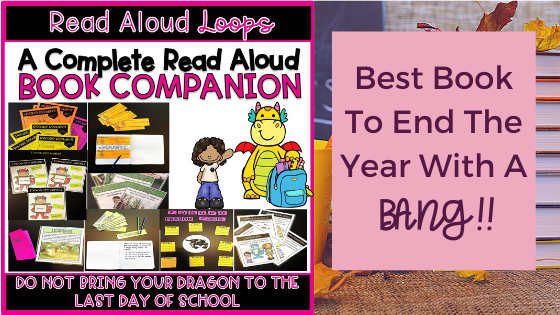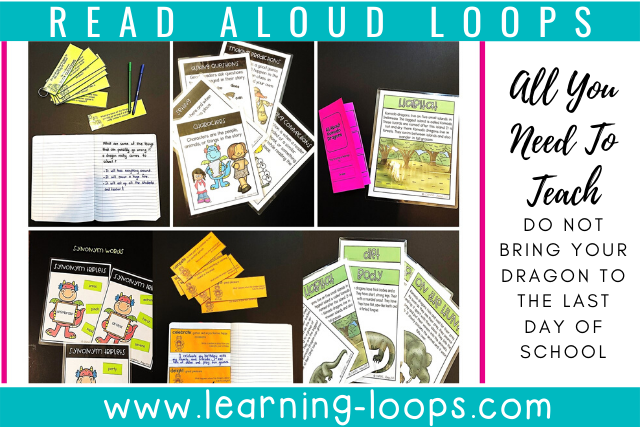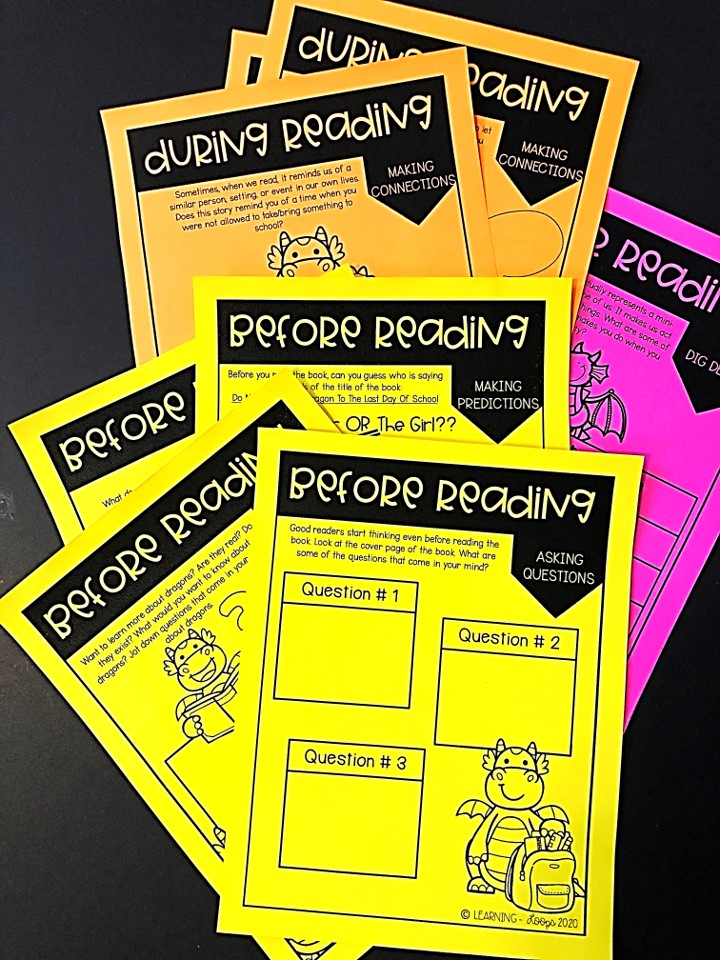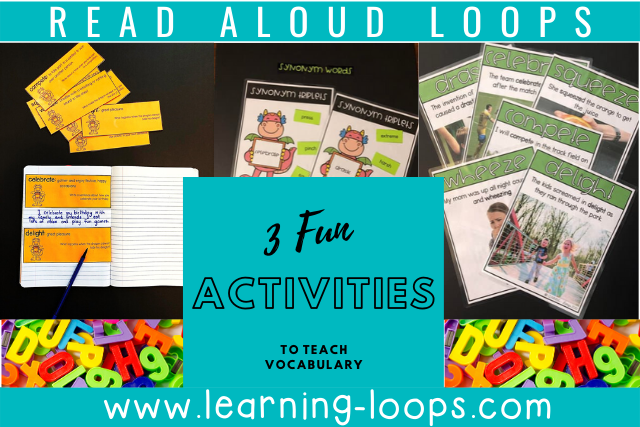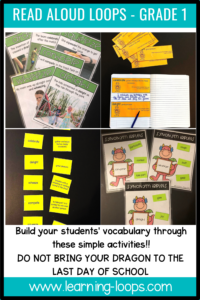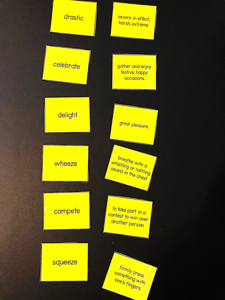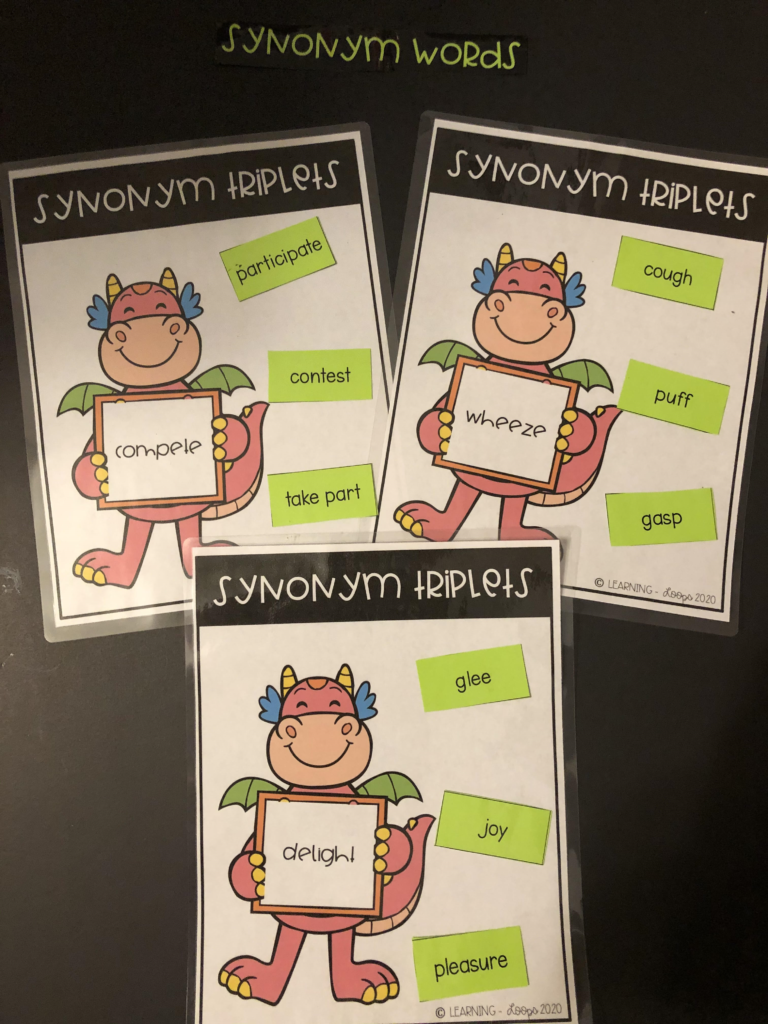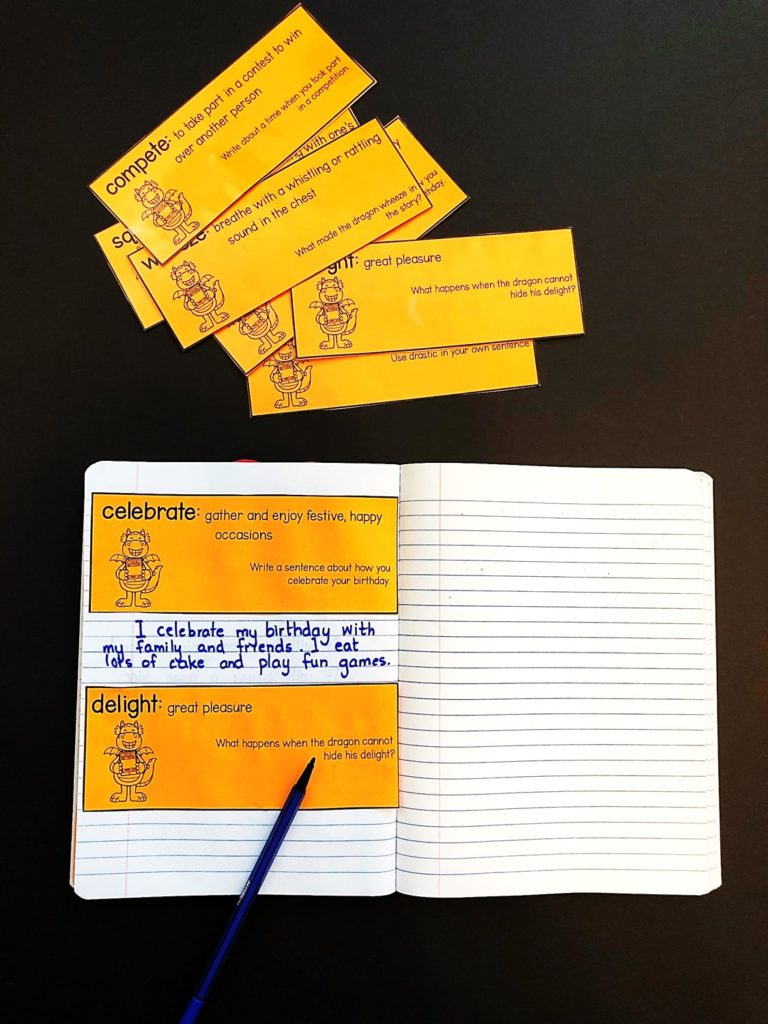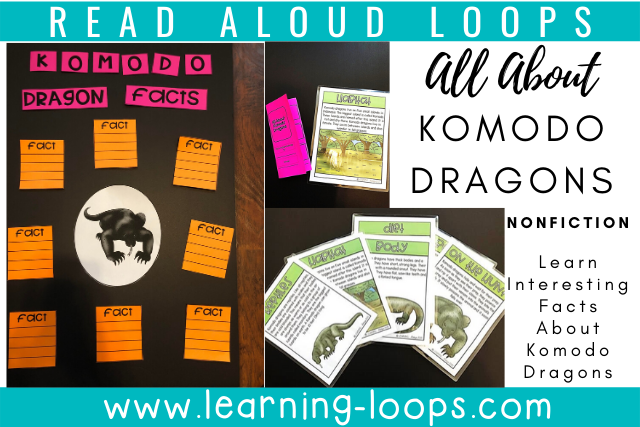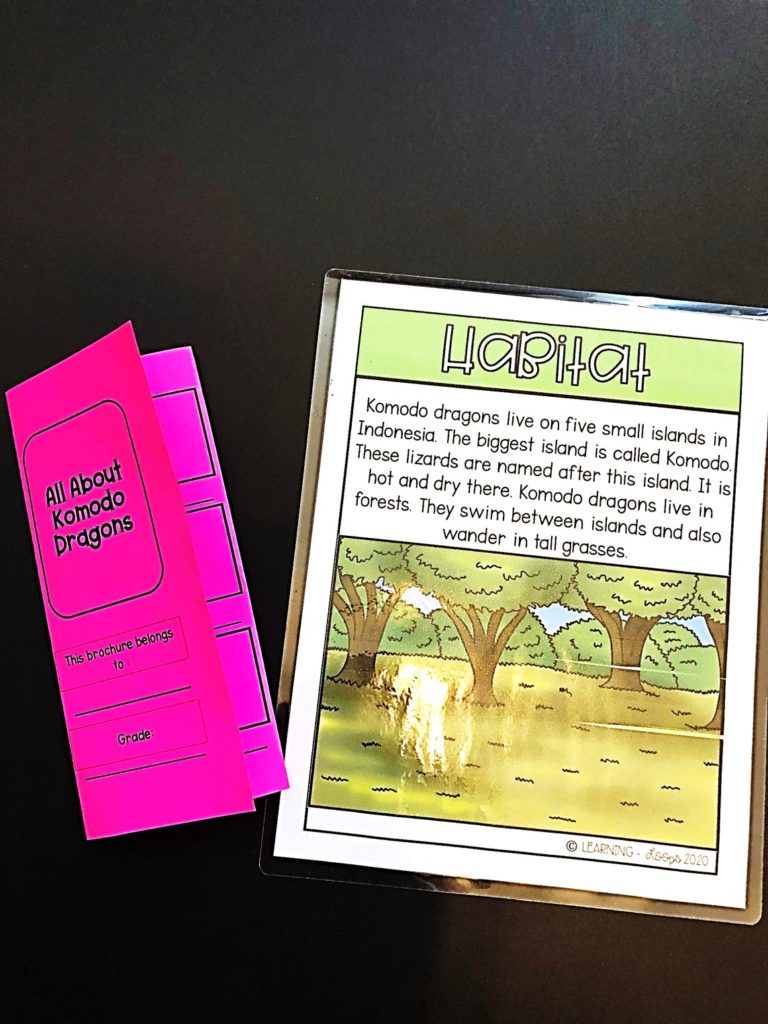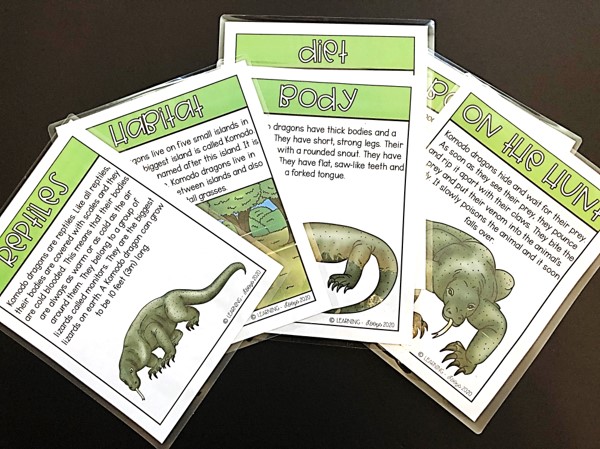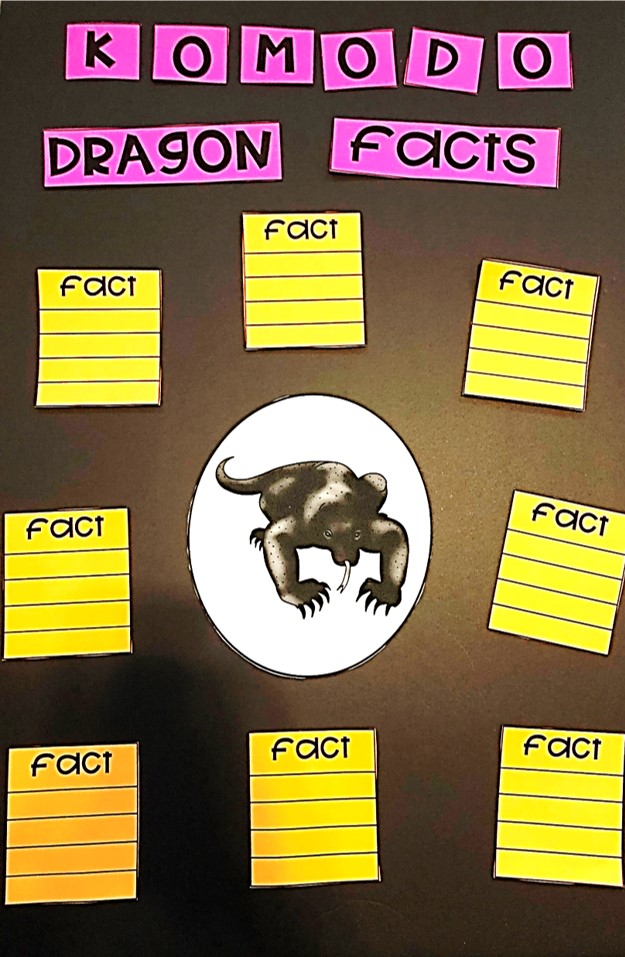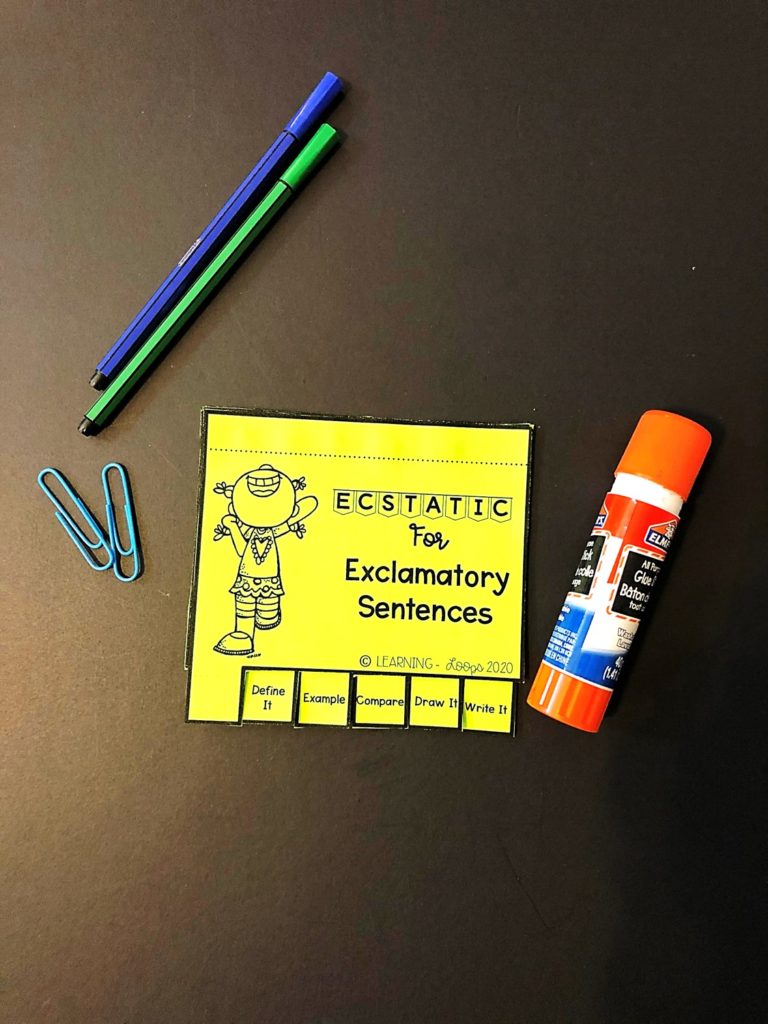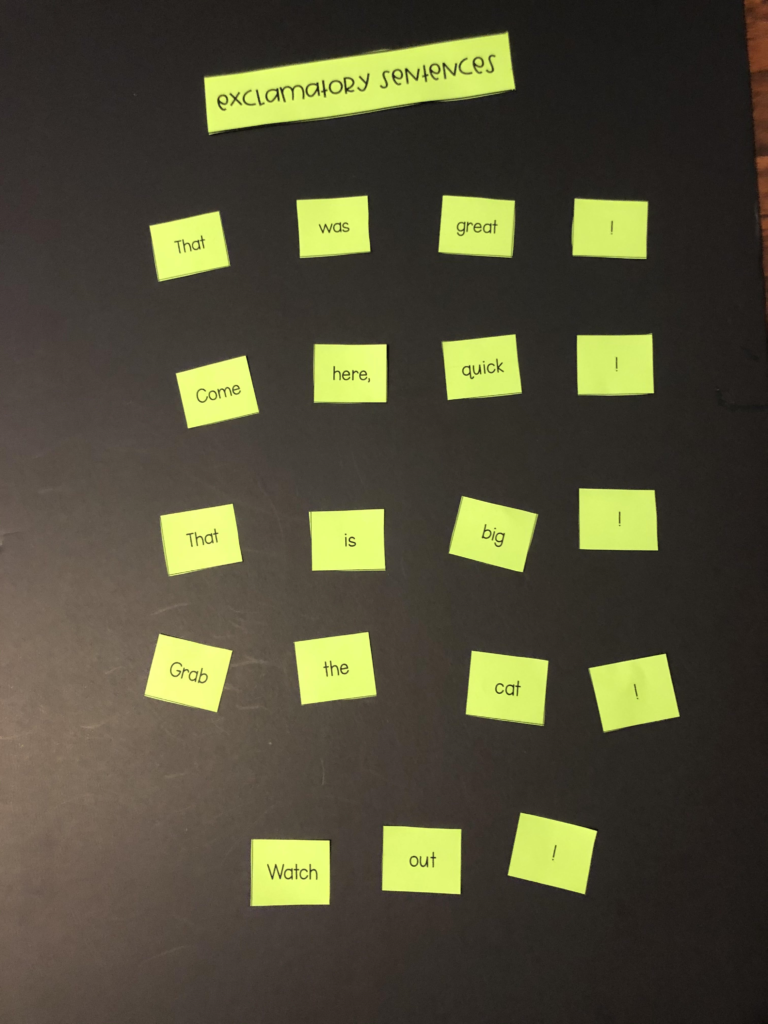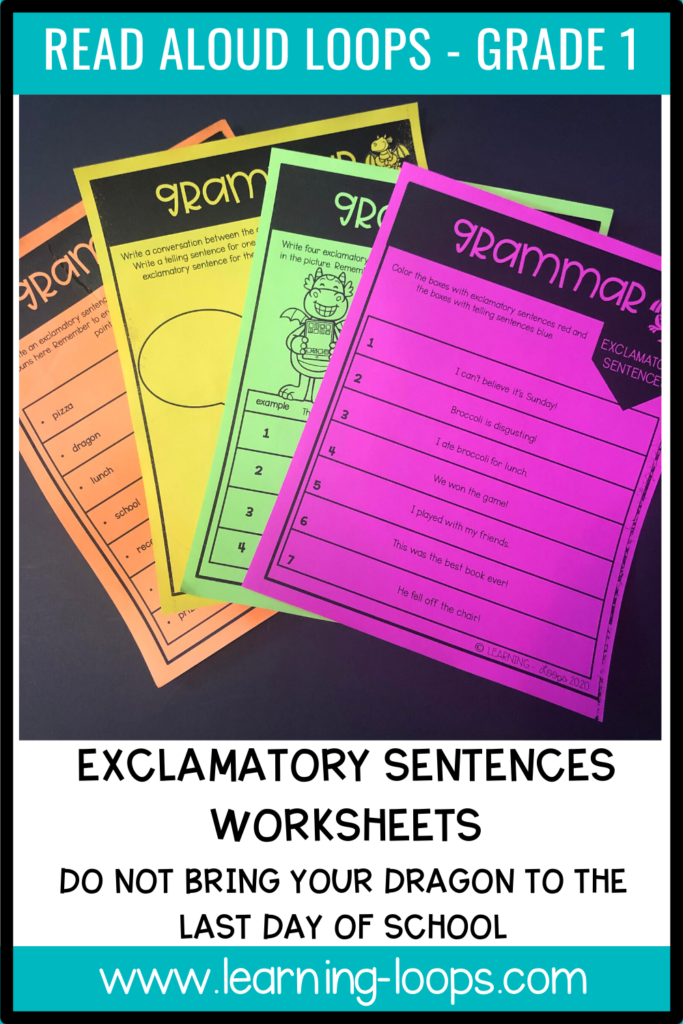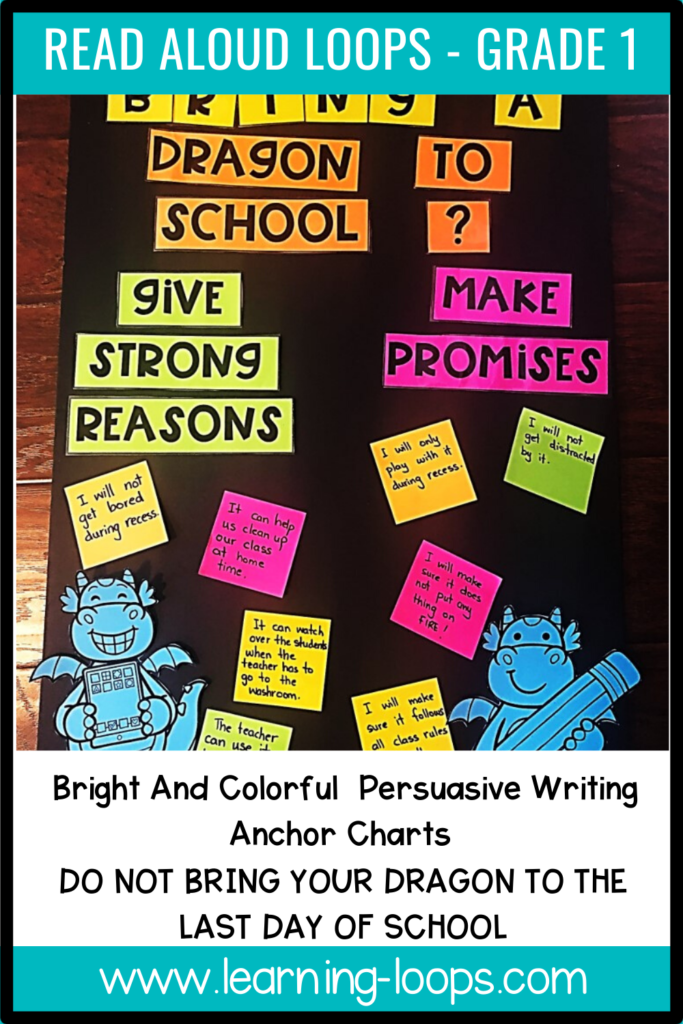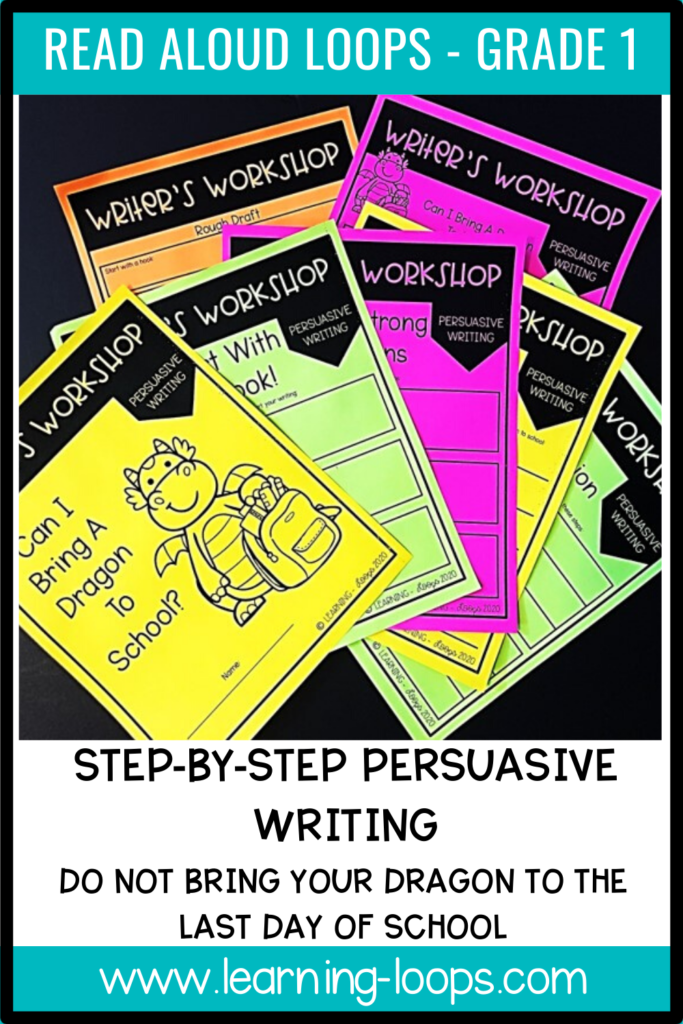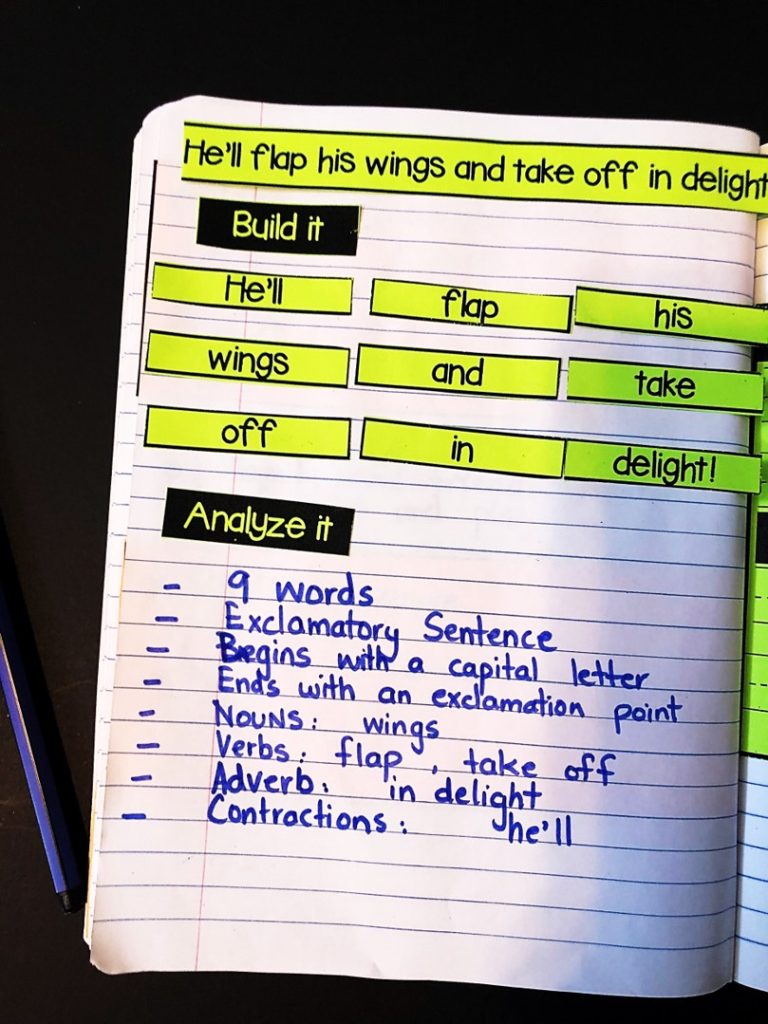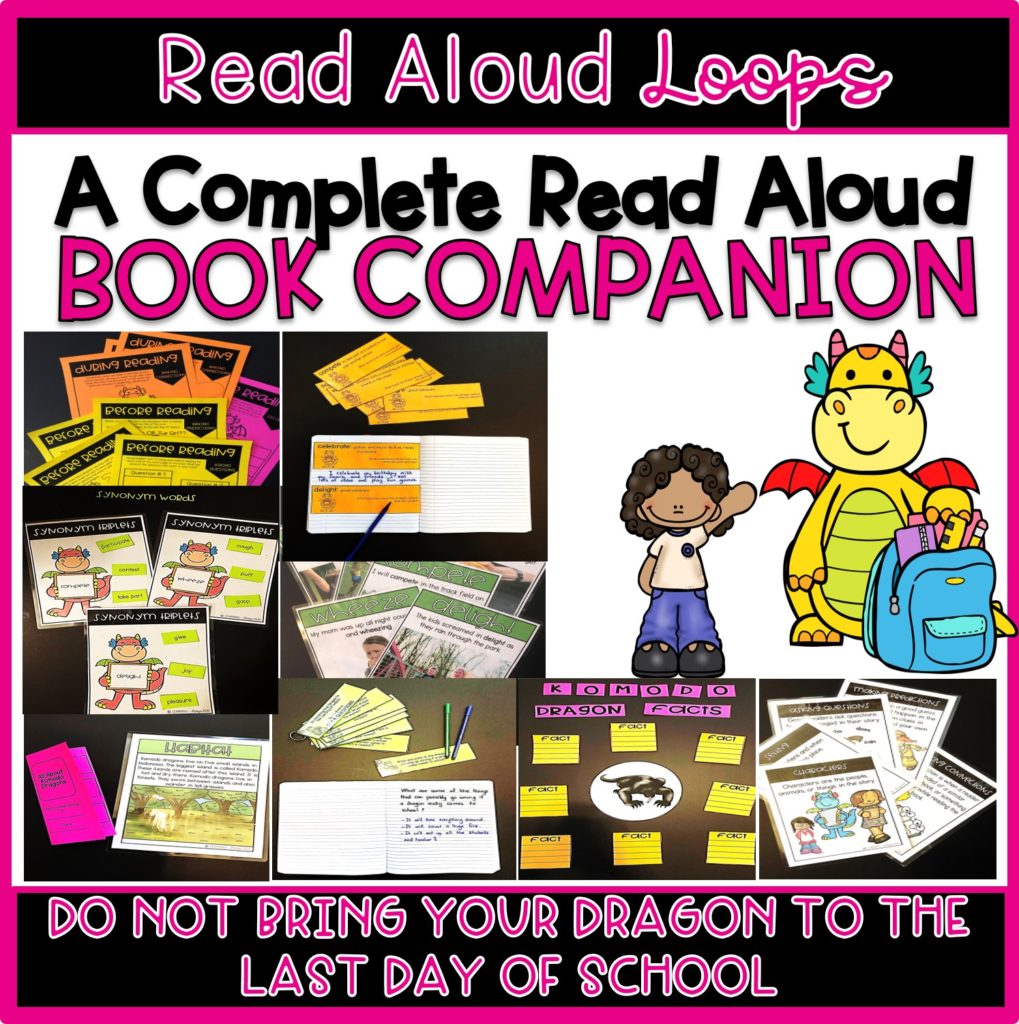END OF THE YEAR READ ALOUD ACTIVITIES FOR READING STRATEGIES
This was a great book to review all the reading strategies that we had learned over the school year. From asking questions to making inferences, from analyzing characters to making predictions, we were able to review, apply and use all these reading strategies during our last week of school.
VOCABULARY CENTER ACTIVITIES
Teaching vocabulary to first graders can sometimes be a little challenging but these 3 activities have been a game changer for me ever since I started using them to teach new words to my kiddos. While teaching vocabuary, it’s very important that we use the words in context and not just give the students a list of words to memorize. Using words from the book being studied and having posters that show those words being used in sentences other than the book really help the child to grasp the full meaning of the word.
The most important tool to use while teaching vocabulary are posters which are accessible to students throughout the day. I usually make posters which show the usage of the vocabulary word in a sentence rather than its meaning because it helps to build a clear understanding of the meaning and usage of the word. These posters can be put up anywhere in the class and can also be used during mini lessons.
Matching game always makes a great center activity to teach vocabulary. Students match the vocabulary word with its meaning. These cards can also be used as a memory game to make it a bit more challenging by placing the cards upside down. Place the vocabulary words along one side and the meaning cards on the other side. Students lift one card from the vocabulary word side and one from the meaning cards side. If both the word and meaning match, the student gets to keep them. If not, then the student puts them back and the next player takes a turn.
Another great center activity to teach vocabulary words is the Synonym Triplets Activity. Students choose the words that have the same meaning as the vocabulary word and place it on the vocabulary sheet. This activity gives an even more in depth understanding of the word and helps them build a bank of words that have the same meaning.
One of my centers to teach new vocabulary words always revolves around Vocabulary Prompts. Students read various prompts for the vocabulary words and answer the questions in their notebooks.
NONFICTION POSTERS
No matter what story we read, I always try to accompany a nonfiction unit with it. It can be about an animal from the book or a place where the story took place. While doing this unit, we chose to learn about Komodo Dragons.
Learning new information about a given topic dosn’t have to be boring. We made colorful anchor charts, read different books on komodo dragons, and reproduced our learning in simple mini-brochures while researching about this animal.
GRAMMAR ACTIVITIES
We focused on Exclamatory Sentences since this book had a lot of those throughout the book. We completed Grammar Tab-IT, unscrambled exclamatory sentences, and worksheets.
END OF THE YEAR READ ALOUD ACTIVITIES FOR WRITER’S WORKSHOP
Easy to follow, step by step unit accompanies this book unit to teach students how to produce a persuasive piece of writing. They learn to start with a hook, give strong reasons, make promises, and end with a strong conclusion.
MENTOR SENTENCES
No book unit is complete without a mentor sentence activity and so we did this activity in our notebooks. Students build, analyze, write, and create a sentence like the mentor sentence.
Check out this entire resource right here.

